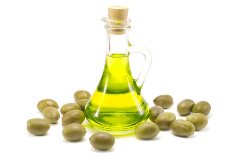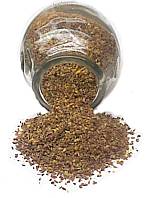There is a strong link between diet, exercise, and the development of cardiovascular disease.
Nutrition plays an essential role in the treatment of cardiovascular disease,especially in high blood pressure and coronary artery disease, which are very common problem in our life.
treatment of cardiovascular disease,especially in high blood pressure and coronary artery disease, which are very common problem in our life.
Cholesterol levels
Because an excessive amount of cholesterol in the blood is a major risk factor for other cardiovascular disease causing narrowing of the arteries, your first priority is to lower cholesterol levels. You should reduce your intake of saturated fats and increase your intake of polyunsaturated and monounsaturated fats, which can actually help lower your blood cholesterol levels. A diet high in monounsaturated fats lowers LDL-cholesterol and triglyceride levels in the blood without lowering HDL-cholesterol levels.
Dietary cholesterol is present only in foods of animal origin, such as meat, poultry, fish and shellfish, eggs, and whole milk and other dairy products. Cholesterol is not found in food of plant origin, which include vegetables, fruits, grains, pulses, nuts, and seeds. The highest amounts of dietary cholesterol come from egg yolks, caviar, and liver and other offal. For example, the yolk of one medium sized egg contains about 200 mg of cholesterol. It's recommends limiting your dietary intake of cholesterol to 200 mg per day for a heart healthy diet.
Reducing total cholesterol, LDL, and triglyceride levels
The first step in treating cardiovascular disease is to lower LDL-cholesterol is usually the primary target and lowering its levels in your blood entails making changes to what you eat, specifically by reducing the amount of saturated fat in your diet. Other lifestyle behaviours, such as weight loss, taking regular exercise, and stopping smoking can also significantly reduce your risk of cardiovascular disease. In addition to lowering LDL and triglyceride levels through nutrition, raising beneficial HDL levels through diet can also reduce the risk.
High blood pressure
Another major contributor to other types of cardiovascular disease is high blood pressure. As the pressure exerted on blood vessels increases, they narrow, making it more difficult for the blood to get through, thereby increasing the strain on the cardiovascular system. Diet and exercise are critical in the effective treatment of high blood pressure, in some cases, changing your diet and increasing your activity level can eliminate the need for medication or reduce the dosage required.
Changing your diet
There is clear link between the consumption of saturated fats, which will raise LDL levels in the blood, and cardiovascular disease. It is recommends limiting dietary saturated fat intake to less than ten per cent of total calories. You should also reduce sodium in your diet, particularly if you have high blood pressure or suffer from heart failure, and increase your intake of of potassium and calcium rich foods.
Changing your lifestyle
Lifestyle changes, such as giving up smoking, losing weight, and increasing your exercise level, will help ease the burden on your cardiovascular system and reduce the effects of high blood pressure and high cholesterol. If you have angina, however, check with your doctor before embarking on an exercise programme. If you suffer from heart failure, make sure you eat enough to achieve and maintain optimum weight, limit sodium intake, and maintain a tolerable activity level.
Nutrients that help cardiovascular disease
In addition to limiting your intake of saturated fats, increasing omega-3 fats, and including more fibre in your diet, there are specific changes that you can make in order to help prevent and treat cardiovascular disease.
Eat plant oils
Plant sterols and stanols, derived from natural plant oils, have been shown to lower LDL cholesterol levels in the blood by up to 14 per cent. As a result sterols and stanols have been incorporated into some brands of spreads. For this with elevated LDL level its recommends that 2g of plant stanol/sterol (esters) be included daily in a diet low in cholesterol and saturated fat, in the gastrointestinal tract sterols/stanol compare with cholesterol is absorbed by the body. Since spread with added sterol/stenol are the main source of these compounds, it is important to substitute these for other added fats, such as butter, margarine, oil, or cream cheese, so that your total calories will not be increased by adding these to your diet.
As a result sterols and stanols have been incorporated into some brands of spreads. For this with elevated LDL level its recommends that 2g of plant stanol/sterol (esters) be included daily in a diet low in cholesterol and saturated fat, in the gastrointestinal tract sterols/stanol compare with cholesterol is absorbed by the body. Since spread with added sterol/stenol are the main source of these compounds, it is important to substitute these for other added fats, such as butter, margarine, oil, or cream cheese, so that your total calories will not be increased by adding these to your diet.
Choose soy products
Studies have shown that eating 25g soy protein every day will lower levels of LDL cholesterol by about five per cent.
Alcohol
The antioxidant properties of red wine may protect your heart by increasing HDL cholesterol levels and reducing LDL cholesterol from being oxidized and deposited in arteries. However if you regularly have more than three to four unites a day (for men) or two to three units a day (for women), you may increase your risk of developing high blood pressure, elevated triglyceride levels, enlarged heart, and stroke. The best approach is to drink alcohol in moderation.
Reduce homo-cysteine levels
An emerging risk factor for developing cardiovascular disease is a high level of amino acid called homo-cysteine in the blood. This can be caused by a genetic defect in the enzymes that break down homo-cysteine, as well as by a diet low in foliate. Vitamin B6 and B12 are also needed to break it down in the body, so much doctors prescribe a supplement that contains these three vitamins for anyone with elevated homo-cysteine levels. If you are at risk of cardiovasculare disease, ask your doctor about taking a multivitamin supplement.
Lin seeds are rich in omega-3
The seeds of flax, linseeds have been valued for their therapeutic properties since ancient times. These nutty tasting seeds are one of the richest sources of omega-3 fatty acids, and are excellent for regulating blood pressure. They contain both soluble and insoluble fibre. Soluble fibre helps reduce cholesterol, while insoluble fibre helps eliminate toxins from the bowel. It is easy to incorporate linseeds into your diet. When ground, they provide the greatest nutritional benefit since the body cannot digest whole seeds. Crushed or milled seeds can be added to breakfast cereals, yogurt, salads, soups, or smoothies. You can also add linseeds to bread, burgers, and sauces before baking or cooking. Oil extracted from the seeds also offers omega-3, but does not contain any fibre. It can be used as a salad dressing, but is unsuitable for cooking and must be refrigerated at all times as it is sensitive to light, oxygen, and heat.
richest sources of omega-3 fatty acids, and are excellent for regulating blood pressure. They contain both soluble and insoluble fibre. Soluble fibre helps reduce cholesterol, while insoluble fibre helps eliminate toxins from the bowel. It is easy to incorporate linseeds into your diet. When ground, they provide the greatest nutritional benefit since the body cannot digest whole seeds. Crushed or milled seeds can be added to breakfast cereals, yogurt, salads, soups, or smoothies. You can also add linseeds to bread, burgers, and sauces before baking or cooking. Oil extracted from the seeds also offers omega-3, but does not contain any fibre. It can be used as a salad dressing, but is unsuitable for cooking and must be refrigerated at all times as it is sensitive to light, oxygen, and heat.
High fibre foods
Since a high fibre diet has been proved to reduce the risk of heart attack and other cardiovascular diseases, it is vi-tall that you eat lots of fibre-rich foods. Eating a diet rich in soluble fibre daily has been shown to reduce levels of LDL cholesterol by about five per cent. Food that are high in fallible fibre include pulses, whole grains such as oats and rye, and vegetables, as well as fruits, which are rich in the soluble fibre pectin. They will help decrease harmful LDL-cholesterol levels and reduce your your risk of cardiovascular disease.
one meal that is easy to transform into a fibre rich one is breakfast. By making simple changes such as substituting whole grain cereals, and breads for refined varieties and adding fruit, you can increase the amount of soluble fibre that you eat every day.
![]()
Disclaimer: This website is for information purposes only. By providing the information contained herein we are not diagnosing, treating, curing, mitigating, or preventing any type of disease or medical condition. Before beginning any type of natural, integrative or conventional treatment regime, it is advisible to seek the advice of a licensed healthcare professional.



























